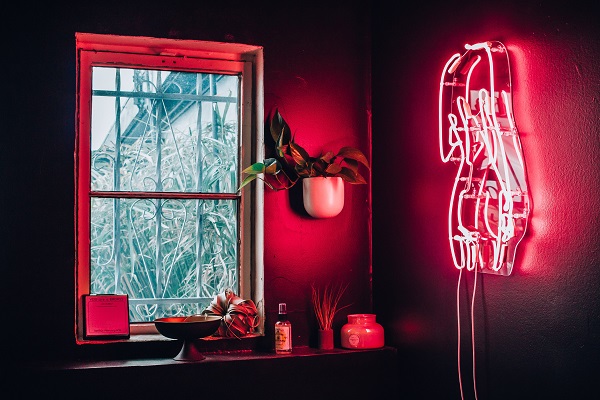
THE FIRST THING Andile did when he discovered the grey pube was pour himself a whiskey. The second thing he did was call Litha.
“I have a grey pube,” he said when Litha picked up.
“What time is it?”
“How can I have a grey pube when I’m not even thirty?”
Litha cleared his throat. His mattress creaked over the phone and a pillow thumped against the floor. Litha was taking his sweet time trying to think of something wise and comforting to say. Andile could wait. It’s no big deal, Litha would say. It happens to everyone. It’s happened to me already. It’s just—
“Shit, friend,” Litha finally said.
—old age.
“We’re going out tonight,” Andile said. He hung up the phone.
On closer inspection, the pube wasn’t even grey. Grey sounded muted and respectful. It was white. Sun-bleached, carcass-bone white. Dry driftwood white. The jeering, malicious white of pre-democratic presidents, insecure bosses, the drunk guys at rugby games who shout about racial quotas. The kind of white that belonged in the rubbish bin of history.
With surgical precision, Andile pinched the hair between his fingernails. A quick jerk of the hand. A tiny explosion of pain and the traitorous curl was gone. It stuck to his finger, refused to go without a fight. But he shook his hand and flicked his fingers wildly until it detached and drifted into the toilet bowl. Level 5B water restrictions be damned. He flushed it out of his life forever.
He was a young man again. Dark and luxuriant.
A ping from his phone. It’s stress, said the message from Litha. Your spinster crotch has gone grey because you never let any boys near it.
What did Litha know about spinster crotches? He was never single. There was always some young, adoring twink following him around, laughing too loudly at Litha’s jokes. Andile tried not to think about the night he and Litha hooked up, years ago now but so often on his mind. Black-lit cubicle, glowing eyes and teeth, hope and excitement in Litha’s face, like he couldn’t believe how lucky he was to kiss Andile.
Andile downed his whiskey. Removed his car keys from the bowl on the kitchen counter. All of me went grey waiting for that joke, babe, he texted back.
ANDILE WATCHED THE sales assistant break away from the perimeter of the store and approach him. A predator moving in on her prey. Bright, smokey eyes and a broad, helpful smile. He felt feral, malevolent, cornered. He knew what she was going to say. He recognised the movements: the troubled head-tilt, the uncertain kneading of hands.
“Sir?” she said, and he tried not to flinch. “The men’s department is through there.”
Andile pulled his lips into an exaggerated smile. He lowered his eyebrows, wrinkled his forehead. It was his most withering look—meant to convey superiority, disdain, the end of his patience. “Babes,” he said. “I’m not looking for men right now.”
Stung, the assistant retreated. She busied herself with a mother and daughter with eyes on the florals. Andile’s eyes were on the jet black blouse with the plunging neckline. He lifted it with both hands to catch the light. Fine gold crosses were sewn into the fabric with a single thread and all of it, even the blackness between the crosses, shimmered.
“I want to try this on,” he said to the woman guarding the changing rooms.
“The men’s changing rooms are on the other side,” she said, her eyes bored and unfocused, eyelids heavy.
“What difference does it make? There’s no one else here and—”
She lifted her arm as if it weighed a hundred kilos and pointed across the shop. Any other day Andile would have demanded to speak to the manager, giving both of them a scathing, eloquent lecture on their blinkered complicity in toxic masculinity, the prison of gender, the basic rules of customer service. But today was not that day. His white hair had spoken: he was elderly. His fight had gone out. He stormed across the shop, past the mother and daughter who pretended not to see him, under the big, silver, back-lit sign that said MEN, past beige chinos and checked shirts and the men who buy them as uniforms. A world of horror on that side of the barrier.
“He-hey, that’s a woman’s shirt,” laughed the changing room assistant on the side of the divide.
Andile tried to summon his withering look, but his eyes were beginning to prickle. “Do you not want my money?” he said.
She shrugged and handed Andile a tag to hang on the outside of the cubicle. One, it said. A crisp, white one indented into the black plastic. One laughable item of clothing for the wrong sex.
“I’ll let you know if I need a different size,” he said, mustering the last of his pride. He closed the door before she could say no. He locked the door behind him. He looked very small in the harsh neon strip-lighting, hunched in every one of the thousands of versions of himself repeating deep into the eternity of the mirror. He shook himself, stood up straight, lifted his chin. He pulled his t-shirt over his head and slipped into the blouse. He looked fucking fabulous in it.
“Yaaaaas kween!” said a white gay man waiting in line for the changing rooms when Andile came out to catwalk in front of the large mirror. The man clicked his fingers and dipped. Andile was in no mood for his solidarity.
OUTSIDE, IN THE sun, there was a marimba band playing at the amphitheatre. Traditional drummers just beyond the food court. A brass band played famous jazz numbers in colourful dashikis and jaunty hats. All for the tourists, Andile knew, to make the atmosphere festive and loud, to match the Africa they expected: carefree, musical and happy, a land of grinning drummers and sunshine and a wholesome, hearty attitude that triumphs over all adversity. There were tourists everywhere. Pink skin, blonde hair in dirty scrunchies. Floor-length black burqas. Dark-skinned West Africans with elaborate, bright head wraps.
Unknown languages skipped past Andile’s ears. And the swallows: the Europeans who followed the summer, half their lives in Germany or England and half their lives here, when the north is dark and cold. They had a particular glow. Deep tan and endless money. The glow of having escaped any kind of context.
Andile sat down on a concrete bench in the amphitheatre and placed his shopping bags beside him. He watched the tawdry marimba band play. He lit a cigarette. He thought about inviting Litha to join him for lunch but Litha was probably busy. He watched a few stories on Instagram and sure enough: there was Litha in the winelands with Andrew, the beautiful but boring guy he had been seeing for the last few weeks. Boomerangs of their chenin blanc, slender glasses clinking and retreating, clinking and retreating.
“I love your nails,” said a woman next to Andile. She was young. Natural hair cut very short and barely combed out. Shapeless, oversized t-shirt. Not the kind of person Andile expected to like his painted nails, but why was he making assumptions? He didn’t know her inner life. Those judgemental shop assistants had gotten to him. Here he was imputing all kinds of Andrea from The Devil Wears Prada to this woman just because she looked shabby, as if she disdained the fashion industry and its whims and its gays and looked down on the shallow pleasures of self expression. She wasn’t contemptuous. She was just poor.
“It’s called My Private Jet,” he said, spreading out his fingers so the black, glittery nail varnish could catch the sunlight.
“That’s hilarious.” she said.
“Babes, closest I’ll ever get to one.”
She smiled at him and turned back to the marimba band. “Don’t you love it here?” she said.
Andile exhaled a few lazy smoke rings. He liked her. He didn’t want to seem like a snob. “It’s okay,” he said.
She clicked her tongue in irritation. “You’re very lucky,” she said. “I save up all week to come here. There’s nothing where I live.”
He didn’t need to ask where she lived. It was all over her. The sprawling, sandy wasteland on the outskirts of the city. The hell-scar of Apartheid.
“Andile,” he said, and she took his hand.
“Nompilo.”
He offered her a cigarette.
“No, thanks,” she said. “I want to keep my lungs.” But she didn’t say it with malice. She was teasing him, giving him the side-eye.
“Which band is your favourite?” he asked, pointing his eyes towards the musicians. He meant to apologise for his bourgie ingratitude, to encourage her to talk about why she loved it here, but it came out sounding patronising: Look at your little musicians.
She closed up. “I don’t know their names,” she said, but her smile was only cheek-muscle, no eyes. She stood up and walked down to the front of the amphitheatre. She began to dance. She closed her eyes, stretched out her arms and swooped them around her in figures of eight. She had seemed so small and shy before, so out of place in this oasis of wealth, but now she was transformed. Lost in the music, utterly free.
Andile’s mouth was sour. He finished his cigarette and stubbed it out on the concrete beside him. Nompilo was hunched over now. She balled up her fists and bicycled her arms to the rhythm of the marimbas. The band cheered and broke into a call and response. Their movements grew more theatrical. They lifted their mallets high above their heads and thumped them down on their instruments. Harder and faster, louder and quicker, they built to a dramatic crescendo of sweat and smiles and chanting and cheers and thundering marimba. Nompilo exploded into a star, arms and legs outstretched, fingers shaking.
A few muted claps from the tourists. Most of them looked bored, even if this kind of spontaneous African dancer was exactly what they had gotten on their planes to see.
ANDILE THOUGHT OF Nompilo that night in the club. He wore his obsidian black blouse and his gold earrings and gold eye shadow and a purse and they were the same, the two of them. She wasn’t intimidated by a world designed to keep her out. Expensive shops. Privatised public space. Right of Admission Reserved. She took her ugly clothes and her poverty and danced freely in front of the people who liked to pretend she didn’t exist. He was doing the same, or trying to, at least. Existing without apology. Refusing to believe he didn’t belong. The “masc-for-masc,” bearded, muscled gays looked him up and down like a circus act, desperate to prove to themselves and each other that they were no different from the heterosexual men who hated them, no weaker. They devoured Andile with their cold eyes of judgement. He lifted his chin to meet them.
“I hear you’ve got a grey pube!” someone bellowed in Andile’s ear. It was Andrew, Litha’s bae, all red-cheeked and sweaty. Litha stood behind him in the flashing purple lights and hip hop, eyes wide with amusement.
“I hear you’ve finally started getting some pubes of your own!” Andile replied. An easy joke to make. Andrew was what? Twenty-two at the most. Andile mocked Litha about it all the time. Is he old enough to go out with us? When is his curfew? Does his mom know he’s fraternising with homosexuals?
But Andile didn’t feel like making jokes tonight. He didn’t feel like talking at all. He wished Andrew wasn’t there. He wished he could get a moment alone with Litha, deep in the club where it was too dark to see Litha’s eyes and think about whether he could live up to the expectation. Would he kiss him? Probably not. Not even this time around, even after all these years.
They did a shot together, then Andile left them at the bar. On the dance floor, where the music was too loud to talk, he waved at other friends. He blew kisses, took some videos for Insta. In seconds, the comments came in:
You’re so fierce.
Flames!
Slay!
You give me life!
He shimmied his shoulders and pouted his lips. He wanted to feel the joy he’d seen on Nompilo’s face when she danced. He tried to lose himself in the music. He closed his eyes but quickly opened them so no one thought he was on anything. He didn’t need drugs to feel free.
His friends started to pair up. Some went home in threes. He winked at Litha and Andrew when they squeezed past him on their way out. “I’ll be fine, babes,” he said to Litha. “They’re playing my song.”
He kept dancing long after everyone he knew had left. He didn’t want to pair up. He didn’t need sex to feel free, either. He thought about the way Nompilo had moved. He balled up his fists and wiggled his arms. He extended them out in a muted imitation of her jazz hands. It was dorky and fun. He laughed out loud at himself and pulled his arms back in. No one was paying any attention.
YOU GET HOME okay, love?
Litha’s message woke Andile up. He threw himself into the bathroom. Make-up off. Into the shower. No new nasty surprises this time. No harbingers of age and decline. He got dressed quickly. Plain white-collared shirt. Jeans. Tight but not too tight. Birthday card, nicely wrapped book, bottle of MCC from the fridge. He was late for lunch at his parents’ house. His dad’s fifty-eighth birthday. He lost another ten minutes removing My Private Jet.
Cars parked on the pavements on both sides of the Plumstead street, under the plane trees, in the drive. His parents’ compact, crimson house would be full of cousins and aunts and uncles, his father’s old friends from work and church. Andile turned on the charm. He greeted everyone with a smile and a joke. He went through to the kitchen to put the bubbles in the fridge. His headache was mounting a ruthless attack.
“You look terrible, Andile,” Zanele said.
“It’s good to see you too, Sis.”
Zanele laughed and gave him a hug. She smelt of shea butter and ylang-ylang, wholesome and clean. It made him feel vile and contaminated, as if the club was on his skin, under his nails.
“He’s just hungover,” said Akhona, their elder sister. She stopped slicing the cucumber. “He’s always hungover,” she said with theatrical disapproval.
“I am not hungover. How dare you?”
“Can I pour you a drink, then?” she said.
“I’m on a detox.”
Zanele rolled her eyes. Akhona went back to making her salad. She had loved going out with Andile when they were younger. She loved having a cool, gay brother to take her to places she had never heard of, places where the men left her alone, or partied with her and made her laugh and expected nothing in return. “I miss my single life,” she’d told him only a few weeks ago, her voice sadder than she probably intended. “Is that a terrible thing to say?”
She loved her son, Xolani, but he’d brought deadening monotony with him, too. “Steaming vegetables. Stacking blocks. Cutting toast into squares,” she’d listed on her fingers. She never had time to talk to her husband about adult things. She missed meeting interesting strangers. Where were the opportunities for delightful, unexpected connections?
“You do look odd, though,” Akhona said. “Is this your middle-management-on-the-weekend look? You don’t have to hide yourself for Dad.”
Andile seated himself on the granite countertop between them. He inserted a cherry tomato into his mouth. “I’m not hiding. It’s a slow reveal. More suspense this way. How much gay can he handle? Let’s find out!”
Xolani came running into the kitchen. He hugged Akhona’s legs and gave Andile a shy wave.
“How’s my favourite?” Andile said. “Does your mom know I’m stealing you?” He grabbed Xolani and lifted him up onto his lap.
“You can’t steal me!” Xolani giggled. He buried his face in Andile’s shoulder.
“I promise I’ll still come visit you guys,” Akhona said, trying to keep a serious face.
“Just remember to pack all your toys because I’m never giving you back.”
“Noooooooo!” Xolani whined.
“We’re joking, baby,” Akohona said, stroking his chin. Xolani wrapped his arms around Andile’s neck and rested his head on his chest. It made Andile really not want to ever have to give him back.
Neo was standing in the doorway, watching them. Andile hadn’t seen him come in. How long had he been there? Why wasn’t he moving?
“Hello Tata,” Andile said, “It’s nice to see you.”
Neo stepped into the room. He had become, in the years since Andile had seen him, an old man. His eyes were hooded. The hair at his temples was grey. He walked across the kitchen. Heavy, Big Man walk. Unflattering beige golf-shirt. Stomach out, shoulders back. He opened the fridge. With his back to them all he said, “Good to see you too, Andile.”
His voice was getting that high-pitched, raspy quality that affects some elderly men. Andile thought Neo and Dad were the same age, best friends. But it was obvious now that Neo was quite a few years older.
Neo turned around with his beer and stood silent for a while. “So it’s true,” he said, “you are one of those who like men.”
Akhona stopped chopping. Andile could hear his own breathing.
“Only the nice ones,” he said at last.
“And the nice ones are hard to find,” Zanele said. She clapped her hands and shrugged, made a gesture with open palms to reveal emptiness. Andile could have kissed her then. Akhona laughed and resumed her chopping. Andile smiled at the old man. Conversation over.
Except it wasn’t. “You know,” Neo said, “there was no one like that when I was your age.”
Akhona put down her knife. “Tata,” she said, “there were. You just didn’t know them.”
Neo took a sip of his beer. “What I’m saying. It was not allowed.”
Andile could hear those now-famous words in his uncle’s remark, the threats of an old president: When I was growing up a gay man would not have stood in front of me. I would have knocked him out. Andile refused to feel afraid. He could handle himself in an argument. He knew to expect hatred like this from older people. It was nothing new. He could stand his ground. He did it with shop assistants and telemarketers, with hecklers in the street and church ministers and the casually racist, thoughtlessly homophobic people he worked with. He did it in online neighbourhood watch groups, on Twitter, with friends of friends at picnics in Kirstenbosch. Why was he so nervous now?
He passed Xolani to Akhona and got down the counter. Standing between his sisters, working hard to keep his voice steady, he said: “We can be as gay as we like now, Tata. We can kiss and marry and sprinkle rainbows all over town. I’m sure it’s very hard for you.”
The deep, untroubled chuckle that came from Neo’s throat made Andile’s blood run cold.
“You’re very lucky,” Neo said. A threat. I will not harm you because of where we are.
“Do you want to go find Gogo?” Andile said to Xolani. He took the boy’s hand and walked with him outside to the patio, where Mom and his aunts were lounging by the pool.
THE PARTY WAS in full swing when Andile excused himself from lunch. His hangover had not subsided, not even after a Stoney and a huge helping of oxtail. Flies were swooping lazily through the hot summer air. His young cousins were splashing in the pool. Gleeful screams as their uncles and fathers threw them into the air. If the family is big enough, the continuity’s never broken. This was Andile’s own childhood. Screaming in the pool with his cousins, the older generations sipping beer or spritzers on the steps and telling them to calm down. Sunday lunches in summer after church, rich food, extended family fanning themselves in the heat, everywhere you looked. The only change was that now Andile was the uncle. He’d switched places, without anyone asking him. There was only one more generation to go.
Pain throbbed at his temples. It flared every time he moved his eyes. He went first to his parents’ bathroom and took two of his mother’s headache tablets. Then he closed their bedroom door and sprawled out on their soft, white bed. Laughter came in bursts through the door. The dull bass of music in the living room down the passage. He was happy, even with the headache. He set the alarm on his phone for twenty minutes and closed his eyes.
The door clicked shut and locked. “Ma?” He sat up. Neo was in the room.
“I wanted to see you,” the old man said.
Could he hit Neo with the lamp, maybe? Was there a knife in his mother’s bedside drawer? Andile scanned the room for anything he could use to defend himself. He was too thin, too effeminate. Neo would overpower him easily, even at his age.
Neo approached the bed. Andile folded his arms around his knees. Now was the time to run but he couldn’t move. He could duck around the old man. There was a clear path to the door and safety. But Neo’s movements were slow, almost nervous. He sat down slowly at the end of the bed. “I want to tell you something,” he said.
“Okay.”
“I think it’s good you’re so open with your family.”
“Okay.”
“They love you, in spite of everything.”
Andile pressed his thumbs into his eyes to relieve the last of the headache. They didn’t love him in spite of anything. His thumbs came away with the faintest hint of gold eye shadow. A throaty laugh in the living room. His mom’s scandalised, conspiratorial laugh. Someone had told a dirty joke.
“You’re very lucky.”
Again, with the luck. He’d said it in the kitchen. Nompilo said it at the Waterfront. Akhona said it to him all the time.
“You what-whats have rights now.”
Was it luck not to be persecuted? To escape public shaming and imprisonment and murder? It still happens in other parts of the continent. Was it luck or a very fucking low-bar expectation of humanity? Straight people didn’t go around feeling grateful all the time. And Andile still felt unsafe often. He still felt lonely and judged. He felt ashamed. Part of him would always feel ashamed. Gay rights haven’t fixed everything, he almost snapped, but what would this old man understand about that?
“Yes,” was all he said.
“I have not been so lucky,” said Neo. He looked up with big, yellow eyes and held Andile’s gaze until Andile understood. The room suddenly lost its anchoring. His father’s oldest friend, the uncle at all of their family events, the no-nonsense maths teacher and argumentative soccer coach. The guy who wore beige golf-shirts, for Christ’s sake. A master at passing. Andile had never suspected a thing.
“Your father can never know.”
“I’m sure he’d be okay with it,” Andile said. He held onto the mattress to steady the room. “He was fine with me. He tries to understand.”
“I have been lying to him all our lives.”
Had he lied, though? He had never pretended to have a girlfriend, as far as Andile knew. There had been no wife. There were other clues too: Neo’s obvious discomfort when people asked him about dating, when they included him in their discussions about beauties on TV. His tendency to get maudlin at big family celebrations. He’d wept like Akhona was his own daughter when she graduated from university.
“You had to, Tata. Everything was different then.”
Neo said nothing. Andile’s neck was hot. He did not want this weight on his soul. This suffocating old man’s secret. A life of secrecy and shame, darkness and half-truths and diversions. It disgusted Andile. The cowering, the scrabbling for tiny scraps of affection where they fell. He had settled for the life of a friend, an uncle, a peripheral character. Even his friends didn’t know him, not really. They had families of their own, people more important to them. This was all so demeaning. How could Neo bear it? Andile closed his eyes. Don’t make me bear it.
“I think you should tell Dad,” he said. “At least give him a chance.”
“I’ve only been with prostitutes,” Neo went on, relentless. “I’ve only ever had sex with prostitutes. No one else. No one who could love me. I specially chose them so they couldn’t love me. They wouldn’t turn up when I’m—”
“Why are you telling me this?” Andile said, surprised at the hostility in his own voice. He was sorry he asked. He didn’t want the answer. The answer was, obviously, that Neo just needed to finally tell someone.
“Because,” said Neo, “I don’t know. I think, because you are so beautiful.”
Andile cleared his throat. He didn’t follow the logic. “Thank you,” he said.
Neo lunged towards him. Big Man heaviness in Andile’s chest. Dry, cracked lips. Coarse stubble. The beige shirt smelled faintly sour, damp laundry not properly dried. Neo’s breath was sweet and stale, a mix of beer and ox-tail. Strong hands tightened their grip on Andile’s neck. “It’s fine,” Neo mumbled into Andile’s mouth. “Relax.” Andile pushed hard against Neo’s thick chest. Neo let go.
“Fuck!” Andile said.
“I’m sorry.” Neo couldn’t look at him.
Andile’s muscles were tight, tingling. He paced the room. He wanted to punch a hole in the wall, like they did in the movies. Scream at this miserable old man and his miserable old life. Who did he think he was?
“I’m sorry,” Neo said again. His cheeks were wet and he would not look up from his hands in his lap. “I’m so sorry.”
Andile watched Neo’s powerful chest heave in ragged, jerky breaths. He looked at the hair at Neo’s temples. Thousands of short, tightly curled hairs. White as an epiphany. He stopped pacing. He leaned towards the old man, took his face in his hands and kissed him. A long, soft, passionate kiss. His hands came away wet from Neo’s cheeks.
“I’m not doing that again,” he said when they pulled apart. “But if you like, Tata, we can go for lunch sometime. Or coffee. We can talk. I’m here.”
A knock on the bedroom door. “Come on you two,” said Andile’s mother. “We’re about to cut the cake.” She tilted her head, quizzical, then winked at Andile. “Your dad’s going to need some help blowing out that many candles.”
ANDILE WATCHED THE flames go out, two or three at a time, his father’s puffed cheeks and watering eyes behind them. A little O formed between his lips. Fifty-eight years was a lot of history to extinguish. His father smiled at Andile. A wide, happy, un-selfconscious smile. He loved being surrounded by his family, his wife and three children, his friends and sisters and cousins. It was a life he was proud of. In the suburbs, too, where black people were barred from living only a generation ago. This would have been unimaginable when his dad was young. Unimaginable, such a simple life as this.
Andile pinched a few of the smoking wicks, got up to pour himself a glass of MCC. No one else wanted any, not even his sisters, not Neo, brooding and quiet in the rust-coloured armchair. Not the birthday boy, who had switched from beer to rooibos tea because he thought it went better with cake.
Andile squeezed in between Zanele and Akhona on the couch. “I’m glad you escaped the kitchen,” Akhona whispered. “Because he just just kept going after you left. Asking us how long we’d known, if dad is okay with it, if you have a boyfriend.”
“I had to tell him to drop it,” Zanele said. “I mean, did he think we were going to take his side?”
“You mustn’t let it get to you,” Akhona said. “It’s just his generation. That’s how they think.”
Andile let the chocolate sweetness of the birthday cake sit for a moment on his tongue.
“He’s not so bad,” he said. “He just doesn’t know how to talk about it.”
His sisters widened their eyes at each other as if he’d scolded them, so he put an arm around each of them and gave them a loud, lip-smacking kiss on the cheek.
“Isn’t it crazy Dad’s nearly sixty?” he said.
“This’ll be us in no time,” Akhona said.
“Aren’t you already about that age?” he said, and laughed when she play-punched him in the chest.
He messaged Litha during a break in conversation. We’re going for a drink tonight, he wrote. And then, a minute later he added: Just the two of us, please. I’ve got something I want to tell you.
ABOUT THE AUTHOR
 Alistair Mackay is a South African writer based in Cape Town. His stories have appeared in New Contrast, The Kalahari Review, Kabaka Magazine, Penny, The Other, Queer Africa: Selected Stories, and Queer Africa II, a pan-African LGBTQ+ anthology that was shortlisted for a Lambda Award in 2018. He has an MFA in Creative Writing from Columbia University in New York City.
Alistair Mackay is a South African writer based in Cape Town. His stories have appeared in New Contrast, The Kalahari Review, Kabaka Magazine, Penny, The Other, Queer Africa: Selected Stories, and Queer Africa II, a pan-African LGBTQ+ anthology that was shortlisted for a Lambda Award in 2018. He has an MFA in Creative Writing from Columbia University in New York City.


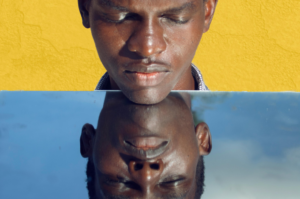

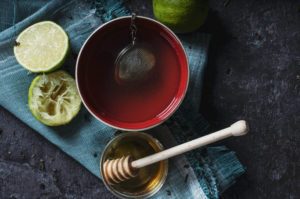

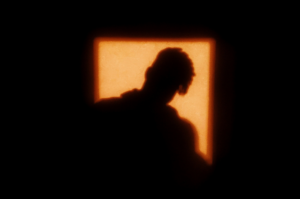
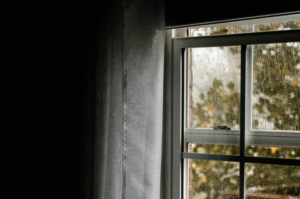

COMMENTS -
Reader Interactions